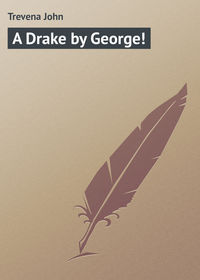 полная версия
полная версияThe Plowshare and the Sword: A Tale of Old Quebec
"The use of the sword will be as child's play after pulling against this stream," gasped Hough.
Again the men bent their backs, and the boat sullenly made way. Behind them the morning was breaking rapidly, the fog gathered in whiter folds, and some flickering bars of grey light crossed the track of the river.
"They must not see our faces nor hear us speak," Penfold muttered. Then he whispered sharply, "Heaven be thanked! A ladder hangs at her stern."
He drew the borrowed plume over his eyes, and lowered his head because he was facing the ship. His comrades gave way, driving the heavy boat upward with great strokes of the clumsy oars, until Penfold muttered softly, "Easy now."
The two sentries were looking down from above; but they perceived nothing of a suspicious nature, chiefly because they had no cause to fear the coming of the enemy.
Young Viner was the first to leave the boat, but Penfold was hard after him. They scrambled up the ladder, while the others secured the boat to the steps.
"Five men!" exclaimed Hoevenden, peering through the perplexing light. "Where is the sixth? Masters, where is the commander?"
"Here!" muttered an English voice, and the sentry fell forward with Penfold's sword through him. Oog opened his mouth to cry "Treachery!" but all the sound that issued therefrom was a death gasp, as Viner finished his career with a pretty stroke which effectually deprived the Dutchman of his hoped-for heritage in the south.
"A fair beginning," said Penfold, peering forward at the big cabins which gave the ship a curiously humped shape. "Now to smoke out the hornets. If we are mastered by numbers, we may yet save ourselves by swimming to the shore. All silent yet. But see – a gun!"
He rammed his sword up the muzzle-breach. "'Tis loaded. Fetch me yonder lantern."
Hough brought the lantern from the poop; but hardly had he done so when a head came out from one of the cabin windows, and a pair of frightened eyes swept their faces. In a moment, as it seemed, the ship was in an uproar.
"Now may God deafen the Frenchmen," prayed Penfold, as he swung the brass gun round and pointed its muzzle at the cabin door.
Viner and Woodfield were fastening down the hatches, while Hough ran forward, taking his life in his hands, and severed the cable. The ship quivered, shook herself like a dog aroused from sleep, and very slowly answered the downward pull of the stream.
But before the Puritan could return the cabin door burst open and the enemy swarmed forth. Hough dropped the first in his shirt, parried a blow from the second, turned and ran back, while old Penfold opened the lantern and brought the flame down to the portfire.
There was light now over the St. Lawrence under masses of wet cloud. An Indian canoe was flying over the water like a bird, urged by two pair of arms paddling furiously. She caught the floating ship, and as she made fast to the side of the steps the gun roared overhead, and after it an English cheer shook the mist.
"Keep to my side," said the man in the canoe. "Forget not that pass under the hilt I taught you."
Having thus spoken he bounded up the ladder.
CHAPTER VII
THE FIGHT
Although the majority of the thirty-six Dutchmen left aboard had been secured below hatches, those on deck were sufficient to make the odds heavy against the Englishmen. The unanticipated arrival of the lord of the isles and his son – who had been returning from their hunting ground higher up the river, when their ears were startled through the morning mist by the sound of English voices – brought up the attacking strength to the fortunate number of seven; but the new-comers were not even observed by the five adventurers during the excitement of the opening stage of that struggle in the fog.
That incautious cheer, which followed the noise of the gun, was defiant rather than triumphant. In spite of Penfold's careful aim the ball had merely crashed across deck and plunged through the cabin windows. A couple of hurriedly aimed shots came back in angry reply, but one passed high, the other low, resulting in a wrecked plank in the deck and the loss of a portion of rigging. The bark of seventeenth-century cannon was far more formidable than its bite.
"Have at them, my lads. Drive them over the side," thundered Penfold; and he rushed forward to clear the deck at the head of his gallant few.
Before the conflicting parties could meet, three Dutchmen, deceived by the tumultuous English cheer, had gone over the side to swim for shore. These men believed that at least a boatload of armed men had taken them by surprise, and they but obeyed the instinct which in certain temperaments recommends prudence in the form of flight.
"We stand too close together," rang out Penfold's voice. "Friend Woodfield, I had your elbow twice into my side. Separate a little, but let us keep in line."
"One rush forward – a strong rush to the cabins," shouted Hough. The five swords darted through the fog, and every point came back reddened.
Then they broke into a run, hoping thus to sweep the deck, but their weakness had by this time become evident to the defenders, who in their turn pressed forward, conquering by sheer weight of numbers. Each of the adventurers sought shelter for his back, a mast or bulwark, and each was driven to fight independently. Three men rushed upon Penfold and pressed him sore. The Englishman cut at the head of the foremost, but while his arm was uplifted the others took the advantage offered and ran in under his guard. Penfold drew his dagger and beat at them with his left hand. The second Dutchman scratched him deeply along the side. The third caught and held his left wrist, and shortened his rapier to run the Englishman through the heart. Penfold saw death before him, but only called grimly, "Fair play, ye dogs, fair play!"
The sword was dashed from his hand. He pressed back to avoid the plunge of the shortened blade, but the Hollanders had him at their mercy. Penfold prepared to make a last effort to break aside, when the foe who threatened him started rigid with a gasp of pain, and the leader of the adventurers saw the point of a sword dart fearfully from the Dutchman's chest. Then the man fell forward spitted from behind, and with him another of the soldiers, while the third of Penfold's assailants splashed heavily into the St. Lawrence.
The man who had saved the leader's life went on his way fighting with magnificent confidence in the strength of his right arm, and beside him went the boy, fighting with all his father's fervour, his brown face pale with passion, his little brown hands already oozing blood, and his short sword from hilt to point all bloody too.
"Angels or devils," gasped Flower, who was bleeding heavily from a wound in the thigh, "they fight upon our side."
"At them again," cried Woodfield. "After the brave stranger."
"He takes too much upon him. I am leader here," grumbled old Penfold unthankfully.
The valour of the stranger turned the scale. None of the Dutch could stand before that terrible blade. They gave way, were hunted back to the cabins, and there brought to bay.
"Yield you, sirs!" called Penfold.
Seeing that they had done sufficient for honour, the men yielded, gave up their weapons, and sought permission to finish their dressing. Before this request could be granted, a deep voice exclaimed:
"You grow careless, my masters. Know you not that a bird cannot fly unless she has wings to carry her?"
It was the stranger who issued this caution as he pointed with his sword over the stern.
The ship had drifted some eighty yards from her moorings, her keel grating more than once upon a drift of mud. She had remained close to the bank, out of reach of the strong central current, and now lay almost motionless, because she had reached the slack water where the river commenced its eastward bend. Behind her lay the fortress, already vested in the golden light of the morning. Between, where the white mist was stealing upward, came sailing a great hulk, and above the vapour could be seen the flag of France crushing its golden lilies against the topmast. At intervals came the indistinct murmur of voices, the flash of hurried sparks dropped upon touchwood, the rattle of cannon balls, the ramming home of charges down slim-waisted guns.
"Fool that I am!" exclaimed Penfold. "Fool and forgetful! Up the rigging, my lads, and set the mainsail. What breeze there is blows down the river. Drive me yonder fellows up, George Flower. Do you see that they set all sails, and if they be not ready to obey hurry them with the sword point."
The sailors were driven into the rigging to plume their ship for the benefit of a victorious enemy. The canvas flapped out, the ship veered towards midstream, and, instantly responding to wind and current, floated to the left of the island, with the Frenchman scarce a hundred yards from her stern.
A voice came rolling out of the mist, the voice of D'Archand. "Are you attacked by Indians?" he shouted. The master had undoubtedly made out the Indian canoe floated beside the steps.
"Let any man answer at his peril," said Penfold, glaring round upon the unarmed Dutch.
"Do we fear the French?" demanded Viner hotly. "Here are five – nay, seven – good Englishmen, for surely our stout allies here have fought as only English can – "
"There are a hundred men upon yonder ship," interrupted the leader, "men equipped with the newest weapons of Europe. It were madness to divulge our names and nation. Sir," he went on, turning to the stranger, "we are much indebted to you. Sir, you have fought like a brave man, and have helped us to overcome our enemies. What counsel do you give?"
"Answer Roussilac that Indians have come aboard, but that the crew are capable of defending themselves, if you will," the stranger replied. "So may you avoid his fire. Or with your pleasure I will undertake to answer the master myself, even as an Englishman should always answer a Frenchman."
"And how is that?" demanded Penfold.
The stranger indicated the brilliant flag, flapping in the sunshine like a wounded bird trying to fly but falling back. "By defying him so long as that emblem flies," he said.
Between heavy lines of mist, waved like the bar nebuly upon the shield of the woolcombers, the black stem and white deck of the enemy had become partly visible. Heads of watchers were peering over her side, their bodies hidden, their faces barely above the fog line. Before the cabins in front of the poop a canopy fluttered; under it a table, and upon the table six great golden poppies lifted their heads, their ragged petals flickering under the breeze. The Englishmen saw the bare head and richly caparisoned shoulders of a tall priest, who swayed monotonously from side to side, and muttered Latin in a deep voice. The table was an altar, the poppies were candles, and the priest was La Salle reciting the inevitable morning Mass.
The better-built Dutch vessel, being easily capable of sailing a knot and a half to the Frenchman's one, drew away, her main and fore sheets swelling till they were round as the belly of some comfortable merchant of Eastcheap who had profited by a successful venture upon the Spanish Main. Very soon the voice of the militant priest became like the murmur of an overhead insect.
"Now by my soul!" cried Hough, with a quivering of his slit nostrils. "It were an everlasting disgrace to Christian men to stand thus idle and watch a priest of Baal offering sacrifice. Bid us run out the guns, captain, and drop a good Protestant cannon ball amid yonder catholic juggling. We have fought for our country this day. Let us now commit ourselves to the Lord's work, and snuff out yonder stinking candles, and end these popish blasphemies."
Penfold made no sign of hearing this appeal. He said merely, "They cram on yet more sail. But they shall not come up to us unless we are brought upon a bar, and even so they cannot pass us, because the water becomes narrow beyond. Where is friend Woodfield?"
"Guarding the prisoners at the door of the cabin and keeping an eye that they do not arm themselves."
"Listen to the men below," said Flower. "Our caged birds become weary of confinement, and beat their wings to escape."
Hough and the lord of the isles held their eyes upon the Frenchman, who was now one hundred and fifty yards away, and almost clear of vapour. When they could see that the guns had been unshipped and were pointing over the bows, neither man was able altogether to suppress his feelings.
"The curse of God shall surely fall upon us," cried the Puritan furiously. "When summoned to work in His vineyard we turn a deaf ear to the call. Did evil come to me when I dragged with mine own hands from the reformed communion table of our parish church at Dorchester a Jesuit in disguise, and flung the dog into our little river Thame there to repent him of his former and latter sins?"
"Peace, friend," said old Penfold. "Here is not England, nor stand we on English territory. Let yonder papists worship their saints and idols to their own decay. We are but few in number, though valiant in spirit, and with every man a wound to show. Remember also that this ship is not yet our prize."
"Croaker," muttered Hough disdainfully.
"Say rather a man to whom age has brought sound judgment," returned Penfold, unmoved.
"It is my turn," said the deep voice of the unknown. "Sir Captain, I have a favour to beg. There is a gun yonder on which I have set my eye, a brass gun of some twenty pounds weight, loaded with ball. If it displease you not, I will discharge that gun from the aftmost deck in such a manner that it shall harm no man. Sir Captain, I have some small experience in aiming the gun."
Penfold set his rugged face towards his questioner.
"Good sir," he said, "you are English among Englishmen. We are plain countrymen of the royal county of Berks, village yeomen of small degree, who have beaten our plowshares into swords; but you, I may believe, judging from your speech, are somewhat higher. Tell us, if you will, your name."
"My name is my own, my sword the king's, my life belongs to my country," said the stranger. "Enough to know that I am a man of Kent. If now I have answered you, sir, I beg of you to answer me."
"We should but reveal ourselves."
"Every minute widens yon strip of water between ourselves and the pursuer. She is sailing her fastest, and each minute sends us more of the wind which she has been taking from us. This breeze may endure for another hour, by which time we shall have reached the chasm which is called Tadousac. Sixteen years have I dwelt upon this river, good master, both in winter and summer, and no servant of King Louis, nor Indian of the forest, knows its waters better than I."
Penfold turned to the two associates supporting him. "What answer shall I give?" he asked.
"Consent," said fanatic and youth together; and Penfold gave consent against his better judgment.
Unaided, the stranger carried the short gun up the steps, rested it in position upon its crutch on the sloping deck, and arranged the priming, while the stern boy at his bidding produced knife and flint. The men below awaited results with a certain curiosity, looking for little more than an explosion of powder, and the hurling of a defiant missile harmlessly into space.
It might have been the excellence of the aim, it might have been the working of Providence, more probably it was sheer commonplace English luck; but, when the quaint little weapon had howled, kicked viciously, and rolled over, there came the dull crash of lead with wood, a shower of tough splinters, and – most glorious sight for the adventurers' eyes – the top of the French mainmast, carrying the great white and gold flag, which had been blessed by a bishop upon the high altar of Notre Dame in Paris, sprang into the air like a pennoned lance, described a half circle, and plunged to deck, piercing the canopy as though it had been paper, missing the ministrant by inches only, scattering the candlesticks and breaking the candles before the eyes of the scandalised soldiers, who were concluding their devotions to the "Ite missa est" of the priest.
A great cheer ascended from the Dutch ship, making the cold, pine-clad hills echo and ring. Hough forgot his sternness, and laughed aloud as he clasped the gunner's hand. Old Penfold smiled grimly, with more inward jubilation than he cared to show.
"Now plume her, lads, and let us fly," he shouted. "Steer her around yonder bend in safety, and we may laugh at her cannon."
"The prisoners, captain! We cannot both fight the ship and hold guard over them."
"To the river with them," said Hough. "Let them swim ashore."
"There may be some who cannot swim."
"What better chance shall they have of learning? My father cast me into the Thames when I was but a whipster, and said, 'Sink or swim, my lad.' And I thought it well to swim."
Protesting, struggling, swearing in an unknown tongue, the prisoners were brought forth from the cabins and hurried over the side, the laggards helped by a cuff or kick at starting. The turgid river splashed with Dutchmen, like a school of porpoises, making with what speed they could – for the water was exceedingly cold – towards the rock-bound shore.
Great was the confusion upon the Frenchman when she became so notably disgraced, but presently D'Archand restored a semblance of order, and the men trailed off to their duties, probably not a little afraid at discovering that the ever-dreaded English, whose appearance north of far-distant Plymouth had become a familiar nightmare, were aboard their supposed Dutch ally. La Salle, who had immediately rushed into his cabin and there divested himself of his ecclesiastical finery, speedily reappeared in secular costume with his redoubtable sword naked in his hand. The abbé could swear as heartily as any soldier when put to it, which fact he proved beyond lawyers' arguments then and there.
"Body of St. Denis!" he cried. "See to your priming, knaves. Ah, hurry, young imp of the pit," kicking a scrambling powder-boy as he shouted. "By St. Louis, our Lady, and the Cardinal! This is a Dutch word, a Dutch troth, a Dutch alliance. We shall harry the traitors who have leagued themselves with our enemies, unless their master, Satan, lends them wings to carry them to the uttermost parts of the earth. We shall hang them speedily to the rigging, if the saints be favourable. Fire, rogues! See you not that she is slipping away from us? Ah, for a sand bank, or sunken rock, to catch her as she runs! Mark you now, when I throw a curse over them, how they shall be brought down in their pride."
Despite the malediction of Holy Church, the trim Dutchman swept on nearly a quarter of a mile ahead. Sailors manned the rigging, and crammed on as much additional sail as the masts would bear; the dishonoured flag was replaced; Roussilac paced the main deck, pale with rage, his fingers clasping and unclasping his sword-hilt. D'Archand hurried to and fro, issuing orders with typical French rapidity.
A jet of smoke broke over her bows, and a ball threw up a spout of water in the wake of the fleeing vessel.
"A most courteous and inoffensive messenger," quoth Flower, bowing to the enemy. "Captain, shall we not make a suitable reply?"
"I fear me powder and ball are out of reach," said the captain. "The noisy hornets below guard the magazine. Would that we had a flag to hoist over us, though it were nothing more comprehensible to our foes than the five heads of county Berks."
Another gun exploded, and after it another, and so they continued ringing their wild music, the balls falling astern for the most part, though more than one whizzed through the rigging, yet without doing more damage than cutting a rope.
"Take her wide round yonder point, master helmsman," cried the stranger. "There lies a mud-bank stretching under the water well-nigh to mid-stream. Mark you the place where it ceases by the ripple across the river? Steer your passage to the left of that ripple, and all shall go well."
"Methinks the wind blows more keenly," said Woodfield.
"There is coming upon us that wind which the Indians call the life of the day, a breath of storm from the west which endures but a few moments, blowing away the vapours of early morn and the last clouds of night," said the man of Kent. "We may be sure of that wind at this season of the year. After it follows calm, and the sun grows hot. Haul down the lower main-sail, Sir Leader. The heavy mist upon yonder hills tells us that the wind shall blow full strength this morning."
Even as he spoke a ball from the enemy's bows roared overhead, and snatched away a portion of the sail he indicated. The loose canvas began already to flap and the flying ropes to whistle in the wind.
"Let it remain so," said the Kentishman. "We have no need to take in our sail since they have saved us the work. Didst see how she staggered then? She shall never carry all that weight of canvas through the life of the day, and the wind bears more heavily on her than upon us. Ah, she gains!"
It was as he had said. The unwieldy vessel fell into the breath of the wind, and, righting herself after a sudden lurch, settled down into the water, ploughing a deep white furrow, every mast bending and every rope straining, every inch of canvas bellying mightily.
The Dutchman came out to avoid the mud flat. She began to make the bend, and her helmsman already saw the wide reach of river beyond, when a terrible shout ascended from the men who were caged between decks. At the same moment a pungent odour tainted the free air, and a thin blue vapour began to leak from the cracks and joinings of the planks.
The Dutchman was burning internally. Soon her deck smoked like a dusty road under wind, and the shouts of the prisoners became terrible to endure. The adventurers smelt the choking fumes, saw the curling vapours, and their faces grew pale with the knowledge that they had to face a more dangerous foe than the French, knowing well that any moment a spark or a flame might touch the magazine.
"Unfortunates!" groaned Penfold. "I had hoped to win this ship, and with her sail to Virginia, there to gather a crew of mine own people, and return hither to harry the French."
"To the boats," cried Flower. "Better be sunk by a cannon ball than perish like rats in a corn-stack."
The wind rushed down from the westward rocks with a shout. It smote the waters of the St. Lawrence, beating them into waves. It penetrated the womb of the Dutch vessel, and fanned the smouldering fire into life. It plucked at the cordage, fought with the sails, and bent the masts until they cracked again. It came in a haze through which the sun glowed faintly, and behind over the unseen heights the sky cleared and burst into blue patches, because the passing of the life of the day was as sudden as its birth.
Down went the mizzenmast of the Frenchman with its crowning weight of canvas, carrying away the spanker, the shrouds, davits, and quarter boat; and her sky-sails, which a moment before had raked the breeze so proudly, spread disabled in the river. She dragged on with her wreckage, while men with axes swarmed into the poop to cut away the dead weight of wood and saturated canvas. The mainmast curved like a bow from the main shrouds to the truck, but remained fast until the haze broke, and the sky became a field azure, from which the sun shone out in his might.
Flames were now pouring from the doomed ship, and the poop was a mass of fire. The Englishmen ran for the boats, into which they flung every article upon which they could lay their hands: swords and guns, axes, clothing, provisions, bedding, and even spare sails and ropes. Everything would serve some useful purpose in their life upon the shore. The lord of the isles alone took nothing. He entered his canoe with the boy, and before the adventurers quitted the doomed ship they had reached the shore and entered the cover of the trees, the man carrying the light canoe beneath his arm.
"Release the prisoners," cried Flower, as he cast his last burden into the boat.
"Not so," replied the vindictive Hough. "Let them perish like the men of Amalek before Israel."
"Nay, we are no cold-blooded murderers," protested Woodfield. "Unfasten the hatches, and let them save themselves."
"Have they not been delivered into our hands that we may destroy them?" said Hough.





